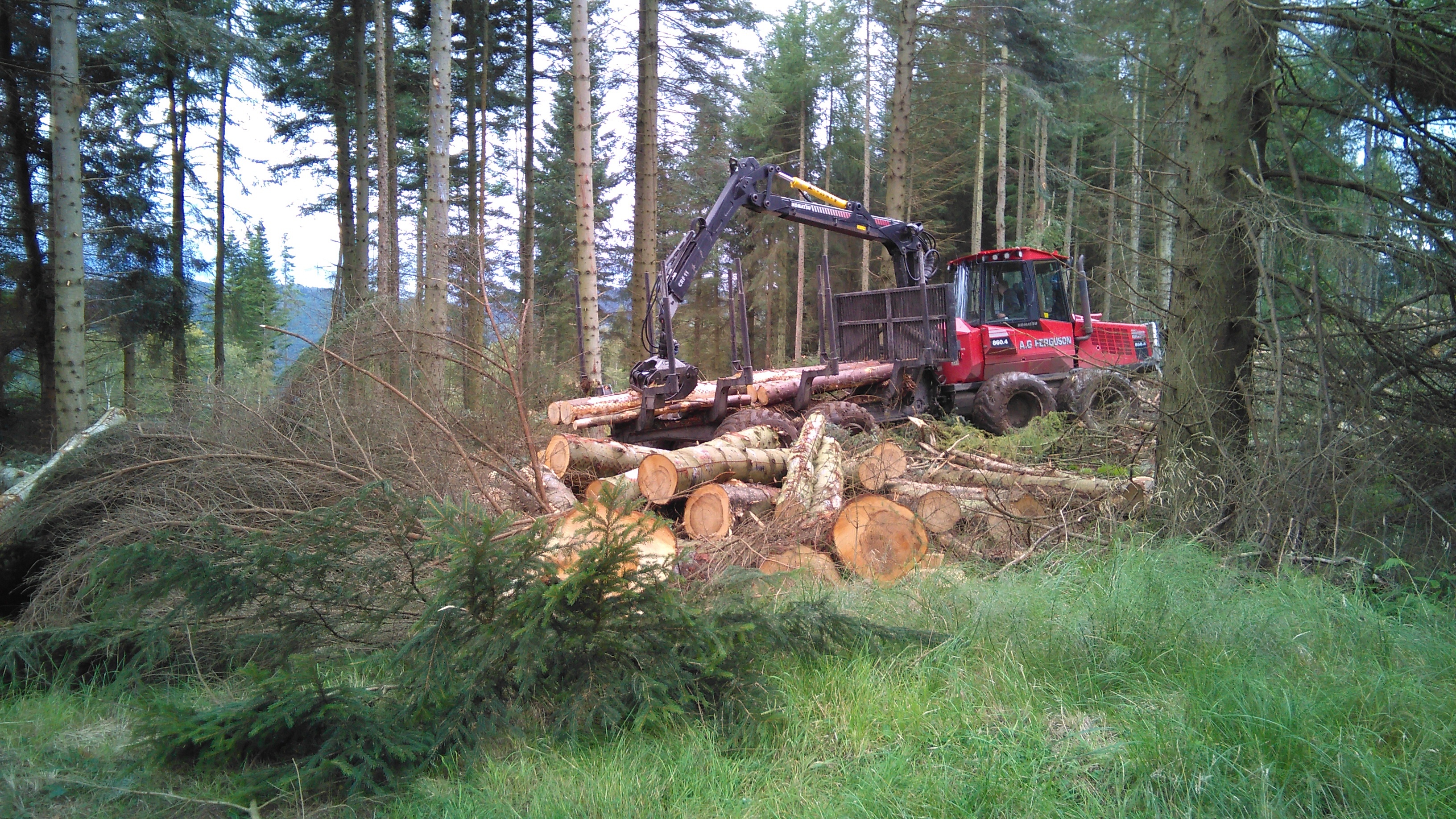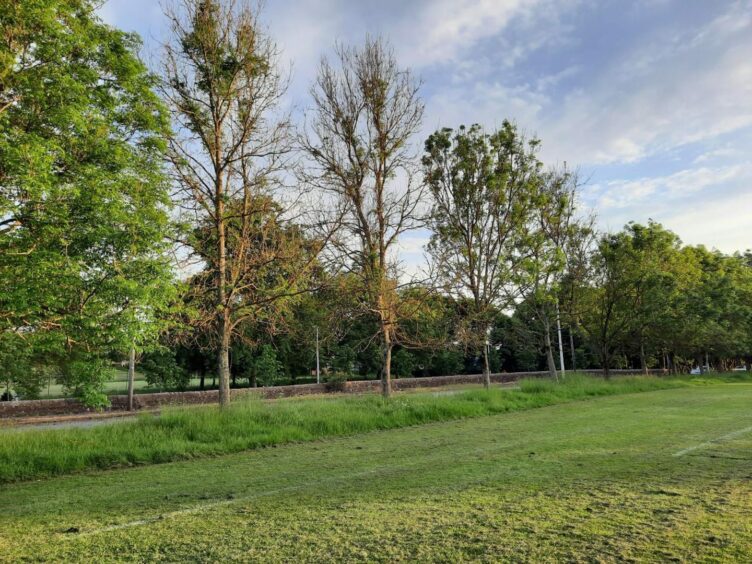Workers have started felling 400 trees on Moncreiffe Hill near Perth as more details emerge over huge costs linked to ash dieback disease.
Officials in Dundee believe the bill could rise to us much as £8 million over the next decade as trees wither, die and require removal in and around the city.
Woodland Trust Scotland (WTS) contractors began the felling near Perth on Monday, January 9.
George Anderson from WTS said cutting down ash trees had now become a “fairly routine occurrence” at the charity’s 60 Scottish sites.
He estimated the total bill for removing dying trees in dangerous locations could rise as high as £20m every year across the whole of Scotland.
George said: “Our hope is in the long run a few resistant trees will survive to produce offspring to restock the countryside.
“Our grandchildren may see a landscape with ash restored but our children are going to see a country devoid of the species.”
Moncreiffe closure details as ash dieback spreads in Perthshire
WTS bosses are warning visitors to its Moncreiffe Hill wood by Perth to expect disruption over the next three weeks.
They are felling the ash trees for safety reasons.
Foresters try to leave infected trees alone – in the hope that some will survive and become resistant to the infection. But they must fell sick trees next to roads and paths.
Workers have closed the car park on the River Earn side of the site for a week from January 9. The main carpark on the Tay side of the site remains open.
The wood itself remains accessible, but with some temporary path closures.
How do you stop trees dying?
Ash dieback is a fungus that originated in Asia. It devastates European ash trees as they do not have natural defences against it.
Ash was once one of Scotland and UK’s most common native trees, but the species started to struggle when experts confirmed ash dieback in 2012.
Experts have linked the spread of the deadly disease to imported saplings.
George said there is a serious risk importers could inadvertently introduce another disease.
He called for more funding to help the Scottish tree nursery sector “scale up” to meet rocketing demand for saplings.
A large number of different organisations are planting more trees in an effort to hit climate change targets.
George said: “Prevention is far greater than a cure.
“Without this investment now, we risk losing more mature trees to disease than saplings are being planted, undermining net zero efforts.”












Conversation